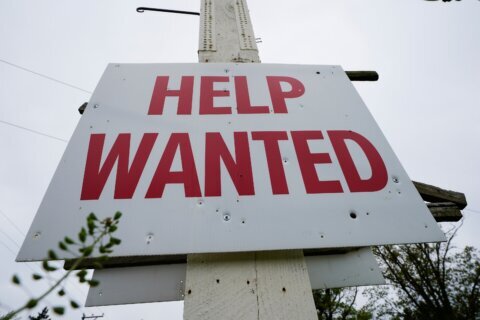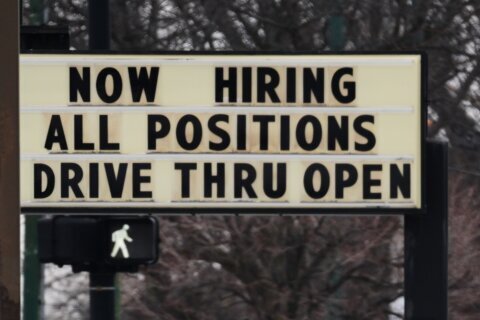Historically, women have earned less than men on average, and this pattern impacts their retirement funds. The median 401(k) account for women is 65% lower than the balance for men, according to recent research from T. Rowe Price.
The study found that women and men tend to have the same access to retirement plans. However, women lag in the amount they contribute to these accounts, their overall level of savings and how confident they feel financially when they retire.
To get a better understanding of these differences, it can be worthwhile to look at factors which impact careers and retirement plans for men and women. These include:
— How women earn less than men at their jobs.
— How women spend their time during their working years.
— What financial stresses women face.
— How the gender pay gap affects women’s retirement.
— How men and women retire differently.
[READ: Essential Sources of Retirement Income]
How Women Earn Less Than Men at Their Jobs
In 2022, salaries for women were 82% of those for men, according to data from Pew Research Center.
The earnings gap begins as young people enter the workforce. “Women are far less likely to negotiate their first offers,” says Kate Dixon, a salary negotiation coach and compensation consultant, and founder of Dixon Consulting in Portland, Oregon. “Negotiating a higher base salary in their first job can have hundreds of thousands of dollars of impact over the course of a person’s career.” The trend continues as women move through their careers.
Efforts to close the gender pay gap have been carried out to address some of these challenges. “Equal pay initiatives and pay transparency laws help, but they’re not perfect,” Dixon says. “Equal pay laws primarily address people doing the same work, which translates into those covered by the same job description.”
For instance, large companies might have training programs for recent graduates and place everyone in the same job code. “But the moment the jobs differ, the company can pay differently,” Dixon says. Employers are also permitted to offer different salaries based on factors such as education, certifications and performance.
[Read: Women Can Close the Gender Wealth Gap by Investing.]
How Women Spend Their Time
During their working years, women may face additional responsibilities outside of their employment. “Women are more likely to take time off from the workforce to act as caregivers for a loved one,” says Joann Small, CEO of Crash Proof Retirement in King of Prussia, Pennsylvania. They might leave the workplace to raise children or look after an aging parent. When they re-enter a career, they may find they have to learn new skills or accept a lower offer, as they lack years of experience compared to some of their peers.
What Financial Stresses Women Face
In addition to lower incomes, women often carry more debt than men. Women have higher credit card balances, car loans, medical debt, payday loans and personal loans, according to T. Rowe Price research. These components can collectively impact women’s savings for retirement. They may face higher interest rates and have less income available to put into retirement accounts.
[READ: Can You Retire on $1 Million? Here’s How Far It Will Go.]
How the Gender Pay Gap Affects Women’s Retirement
Women who are 65 or older face higher levels of poverty than men, according to data from the United Nations. This gap can be attributed to the culmination of lower salaries, more time off to care for loved ones and higher amounts of debt over the years. “These factors can result in lower Social Security benefits and retirement savings for women, which can make it harder for them to make ends meet in retirement,” says Jonathan H. Westover, chair of the organizational leadership department at Utah Valley University.
At times, there may be a desire to continue a career, but greater priority is given to caregiving needs. For instance, women might decide to step away from the workforce at an earlier age to oversee a loved one’s medical condition. If they retire at age 62, their Social Security benefits will be lower than what they would receive at full retirement age.
Women who keep working may feel compelled to remain employed for as long as possible due to their financial restraints. Nearly two-thirds of women who are able to work are delaying their retirement due to inflation, according to the 2023 Nationwide Retirement Institute survey. They could find it difficult to step away from monthly wages and still cover their household expenses.
[See: 10 Strategies to Maximize Social Security.]
How Men and Women Retire Differently
Those with higher levels of income will lead a distinct lifestyle compared to those who are struggling financially. “The gender pay gap and other factors can have significant impacts on women’s retirement security,” Westover says.
For women who are single, health-related costs can be burdensome. “Long-term care is the biggest risk to a retiree’s nest egg,” Small says. “Most retirees underestimate how much money they’ll need to cover long-term care costs.” Women with fewer funds available may need to readjust their budget or spending.
Keeping track of spending and prioritizing saving can be a way to avoid constraints later. For women and retirement, this might include asking for a raise or looking for a higher-paying career.
“The best thing that women can do to bridge the gap between themselves and their male counterparts is to take an active role in their finances if they haven’t already,” Small says.
More from U.S. News
What Is a Good Monthly Retirement Income?
Can You Retire on $1 Million? Here’s How Far It Will Go
Essential Sources of Retirement Income
How the Gender Pay Gap Affects Women’s Retirement originally appeared on usnews.com







